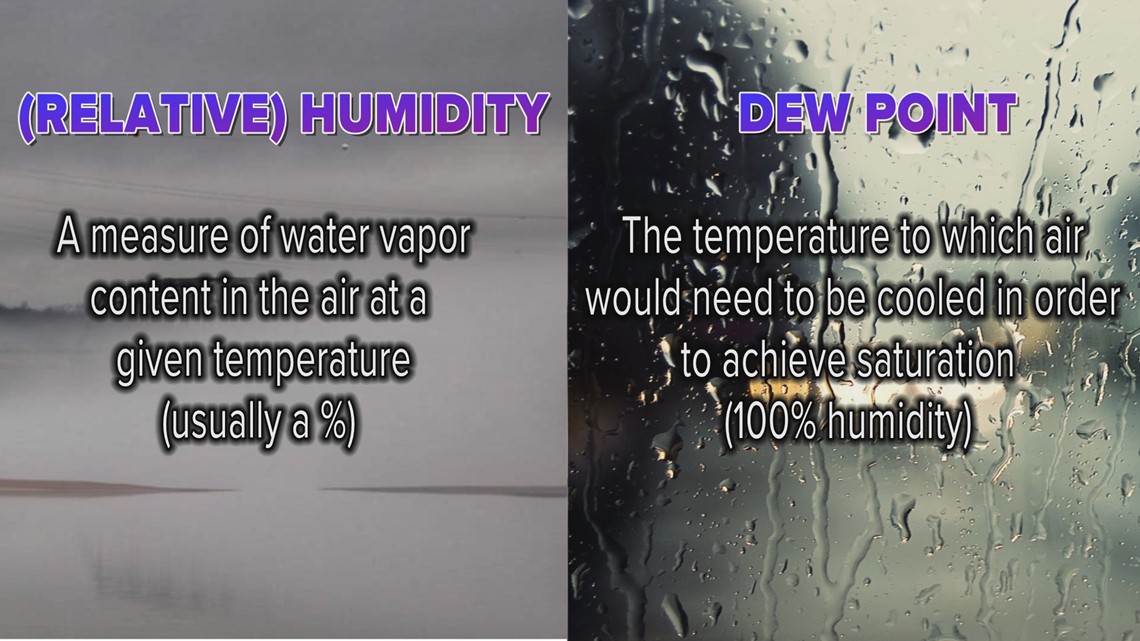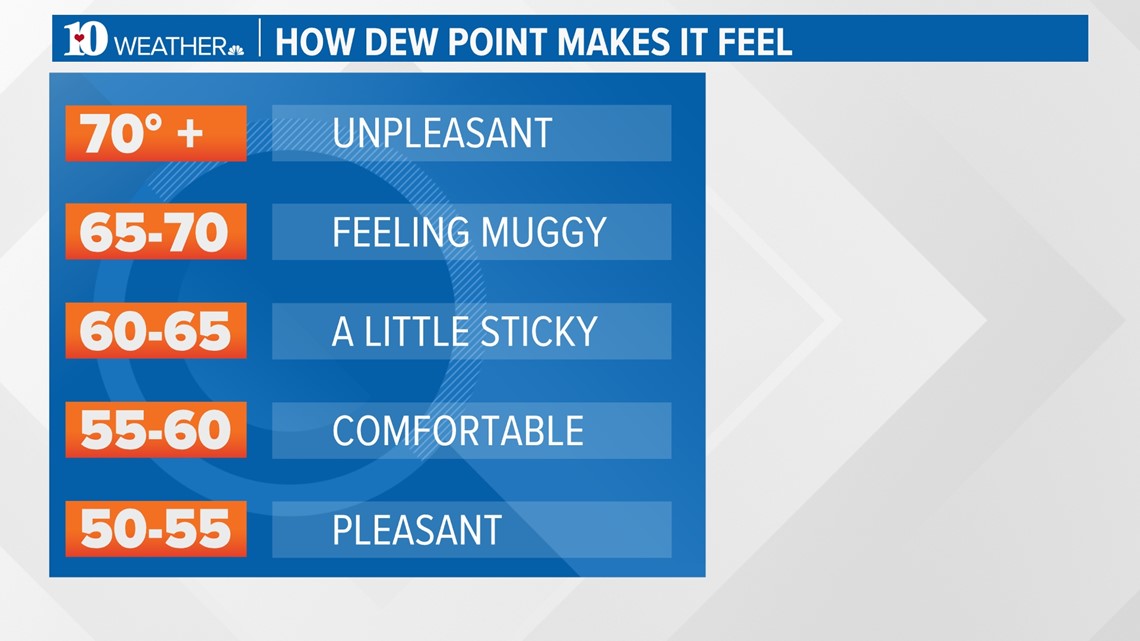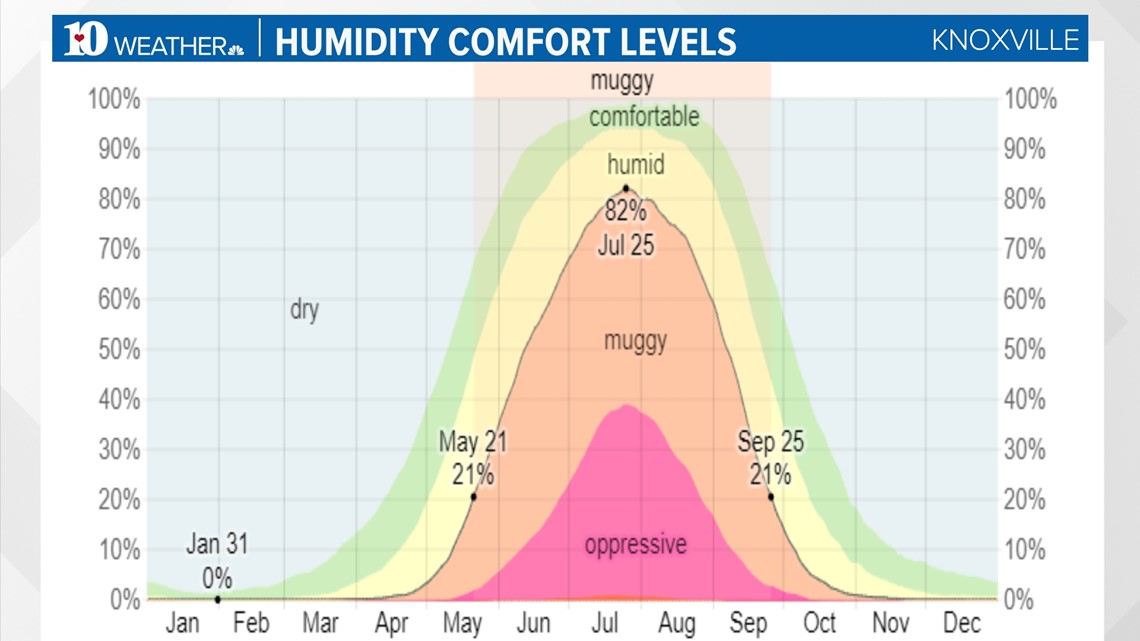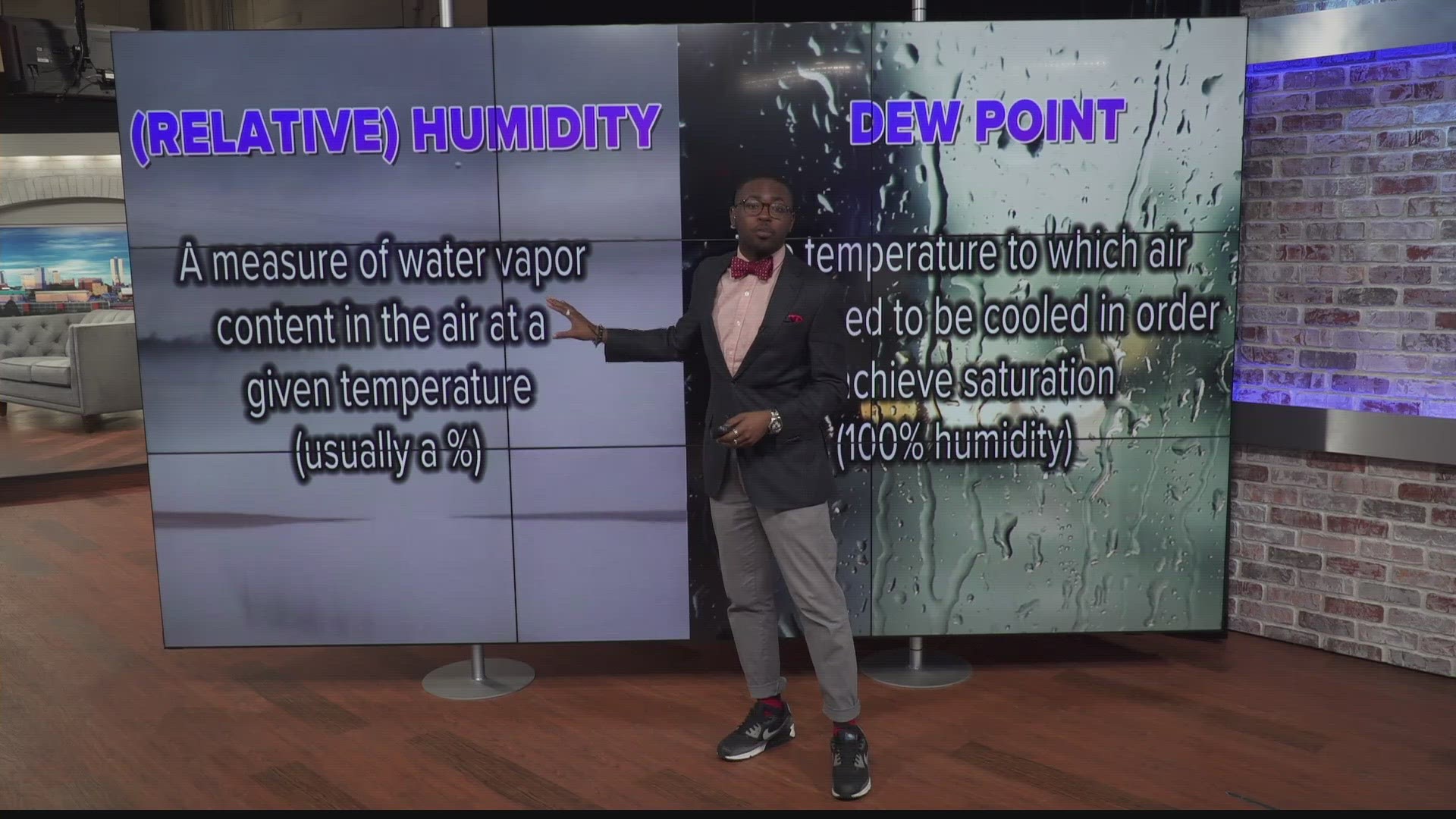KNOXVILLE, Tenn. — As we head into the spring and summer, meteorologists are going to talk more about humidity and dew point. But, what’s the difference?
You might be used to checking the humidity before you step out the door, and with just 60% thinking you’re in the clear – but then when you step outside, you’re sweating bullets. Then you check the next morning: relative humidity is at 100%, but you feel great. So what’s the deal?
The truth is relative humidity is just a scale relative to the temperature and dew point. So relative humidity can be 100% while it’s 30 degrees outside, but since it’s cold, it doesn’t feel humid. That’s because a dew point at 30 degrees is some extremely dry air.


"Relative humidity" is the measure of water vapor content in the air at a given temperature, usually seen as a percentage. The dew point is the temperature to which air would need to be cooled in order to achieve saturation, or 100% relative humidity.
Saturation is achieved when the temperature and the dew point are equal. The dew point is a more literal measure of how much water vapor is in the air – warmer air can hold more water. So the higher the dew point, the more moisture in the air, and the muggier it is.
Relative humidity will rise whenever temperature and dew point get close together. More often, temperatures will fall closer to dew points (especially overnight) but dew points can rise closer to temperatures if a moist air mass is moving into the region. Usually, the arrival of a warmer air mass also means that inclement weather is likely. But that’s part of what makes relative humidity less reliable, it can change almost hourly right along with the temperatures.


So if dew point determines how muggy it is, what is considered comfortable? While everybody may feel it differently, there is a general scale of dew point temperatures and their comfort level.
The dew point can also affect how well sweat evaporates off your skin, so higher dew points mean that it’s more difficult for your body to release that heat. Generally, dew points less than 60 degrees are considered comfortable. As it gets higher into the 60s, the air feels thicker and heavier, and by the time it reaches 70 degrees, you might as well stay inside.


Our muggy season in East Tennessee is during the summer and usually lasts about four months, from May to September. Based on the warm and wet year we’ve had so far, it wouldn’t be a shock if this summer turns out to be oppressively humid.

